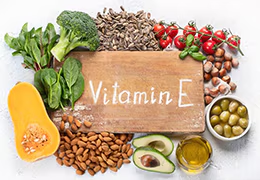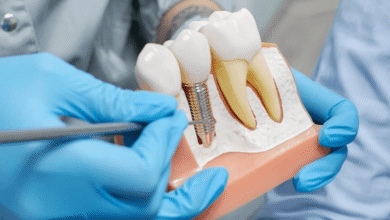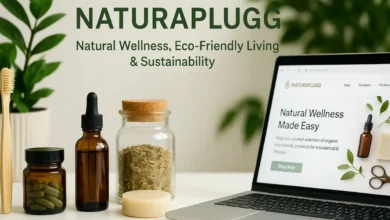The Science of Clear Skin: Vitamins, Minerals & Nutrients Your Skin Loves

Clear, healthy skin is often associated with expensive creams, elaborate skincare routines, and salon treatments. But the truth is, your skin’s health starts much deeper — at the cellular level. The condition of your skin reflects what’s happening inside your body, particularly your nutritional status.
Skin cells are in a constant state of renewal, and they rely heavily on the vitamins, minerals, and antioxidants you consume through diet and supplements. Without these essential nutrients, your skin can become dull, dehydrated, prone to breakouts, and more vulnerable to environmental stressors.
In this article, we’ll explore which vitamins and minerals your skin loves, the signs of nutrient deficiencies that can appear on your skin, the best food sources for skin health, and how a balanced supplement like ACTIVIT can align with your goals for long-lasting skin wellness — without any bold, unrealistic claims.
The Link Between Nutrition and Clear Skin
Your skin reflects what you eat. Nutrient deficiencies in vitamins A, C, E, B vitamins, zinc, and omega-3s can lead to acne, dullness, and dryness. A poor diet also fuels inflammation and oxidative stress, which speed up skin aging and trigger breakouts.
Gut health plays a big role, too — an imbalanced microbiome can cause systemic inflammation that shows up on your skin. Eating probiotic and prebiotic foods, along with colorful fruits, vegetables, healthy fats, and lean proteins, supports clearer skin.
When Nutrient Deficiency Shows on Your Skin
Skin is the body’s largest organ, and like every organ, it depends on proper nourishment. When your diet or lifestyle doesn’t provide enough essential nutrients, your skin will be one of the first places to show signs of imbalance.
Common skin concerns linked to nutritional gaps include:
- Dryness and flakiness – Often related to inadequate essential fatty acids, Vitamin E, or hydration-supporting B vitamins.
- Persistent breakouts – Can be linked to low zinc or high inflammation from oxidative stress.
- Slow healing wounds – May indicate low Vitamin C, zinc, or protein intake.
- Loss of firmness and fine lines – Often due to decreased collagen production, influenced by insufficient Vitamin C and antioxidant support.
- Uneven skin tone or pigmentation – Can be aggravated by oxidative damage and nutrient imbalances.
Addressing these issues at their root — through diet and targeted supplementation — offers a more lasting solution than relying on topical products alone.
Nutrients Your Skin Needs for Strength and Clarity
From a clinical nutrition perspective, certain nutrients play a particularly important role in skin health. Many of these are present in ACTIVIT, making it a supportive choice for those aiming to maintain or restore clear, vibrant skin.
1. Vitamin C
A powerful antioxidant that supports collagen formation, accelerates wound healing, and helps protect skin from UV-related oxidative damage.
Food sources: Oranges, kiwis, strawberries, guavas, bell peppers.
2. Vitamin E
A fat-soluble antioxidant that protects cell membranes, strengthens the skin barrier, and helps retain moisture.
Food sources: Almonds, sunflower seeds, spinach, avocados.
3. Zinc
Crucial for skin repair, inflammation control, and immune defense. Zinc also helps regulate oil production, reducing the risk of acne breakouts.
Food sources: Pumpkin seeds, lentils, chickpeas, seafood.
4. Vitamin A
Supports healthy skin cell turnover and tissue repair, helping to maintain a smooth texture.
Food sources: Carrots, sweet potatoes, dark leafy greens, eggs.
5. B Vitamins (B2, B3, B5, B6, B12, Folate)
Assist in energy production for skin cells, support hydration, and help manage stress, which can indirectly affect skin health.
Food sources: Whole grains, eggs, dairy products, green leafy vegetables.
6. Magnesium
Helps regulate inflammation and supports the skin’s barrier function, reducing sensitivity and redness.
Food sources: Nuts, seeds, legumes, dark chocolate.
The Role of Diet in Achieving Clear Skin
While supplements can help fill nutrient gaps, your everyday diet remains the foundation of skin health. A balanced approach combining nutrient-rich foods with targeted supplementation is most effective.
Skin-supportive diet tips:
- Eat a rainbow of fruits and vegetables for antioxidants.
- Include nuts, seeds, and fatty fish for healthy fats and Vitamin E.
- Drink enough water to maintain skin hydration.
- Limit processed sugars, which can contribute to inflammation and breakouts.
- Incorporate whole grains and lean proteins to provide amino acids for collagen production.
Conclusion
Clear, glowing skin is a reflection of overall wellness — and nutrition is at the heart of it. By nourishing your body with the right combination of vitamins, minerals, and antioxidants, you support your skin’s natural ability to stay resilient, hydrated, and blemish-free.
Pairing a nutrient-rich diet with a well-formulated multivitamin like ACTIVIT can help you consistently meet your skin’s nutritional needs, ensuring your skin has the building blocks it needs to thrive — naturally and sustainably.




